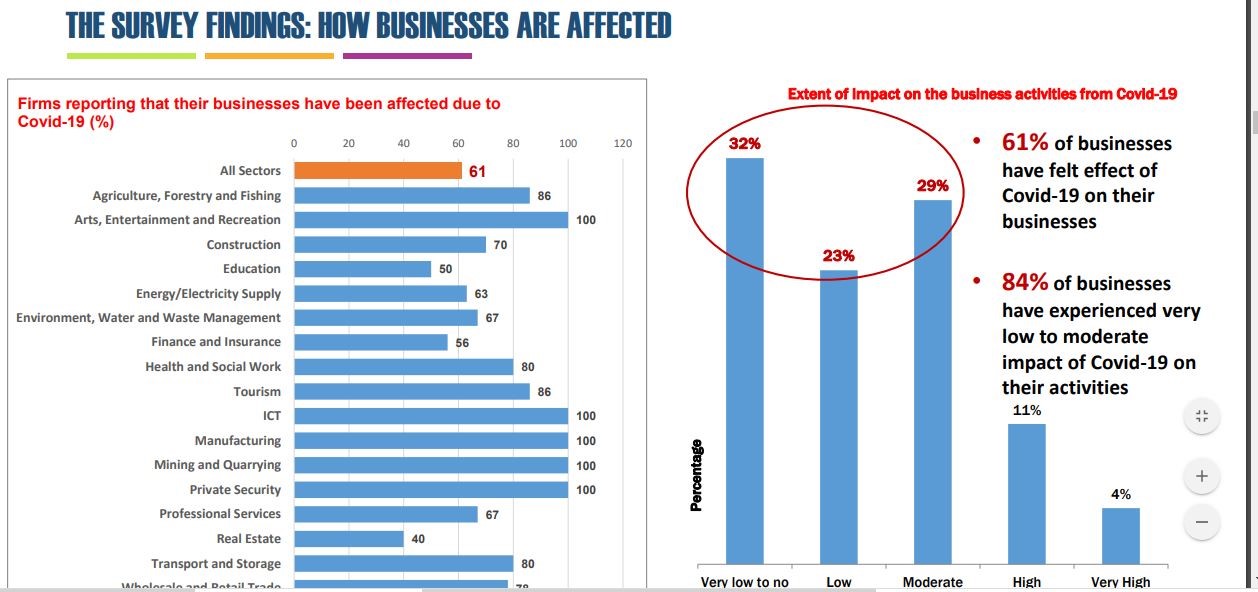 COVID-19 has caused a standstill economically and socially around the globe. For example, it is estimated that ‘It could take three years for the US economy to recover from COVID-19’ by a publication on the world economic forum.
COVID-19 has caused a standstill economically and socially around the globe. For example, it is estimated that ‘It could take three years for the US economy to recover from COVID-19’ by a publication on the world economic forum.
Many businesses have been caught unaware and the impact continues to be felt all over the globe across all sectors ranging from hospitality & tourism, transport, health among others. This is the time for businesses to re-think their business models to help re-build resilient economies. Economies that will stand global pandemics such as Covid-19 and remain future proof.
According to a report by the Kenya Private Sector Alliance (KEPSA), Tours and Travels businesses, Transport and Logistics, and industries that depend on imported raw materials are among the sectors that will bear the worst brunt due to the Corona pandemic.
The report on Business perspectives on the impact of coronavirus (covid-19) on Kenya’s economy, shows that 61% of businesses have felt the effects of Covid-19 on their businesses. 84% of businesses have experienced very low to moderate impact of Covid-19 on their activities. Available figures indicate that between January and February 2020, Kenya’s imports from China declined by 36.6 per cent due to the lockdown.
This has slowed down Kenya’s manufacturing industry leading to loss of jobs as a result of closed businesses and increased prices for some commodities. Many vulnerable and poor families continue to endure arduous times as a result.
If things continue like this then many micro small and medium size business enterprises (MSMEs) will continue to suffer, others to the point of closing. The Central Bank of Kenya (CBK) estimates that SMEs constitute 98% of all businesses in Kenya, thus creating 30% of jobs annually and contributing 3% of the Gross Domestic Product (GDP). According to a report by South Africa’s Rand Merchant Bank, several countries in Africa suffer high risks from Covid-19. Kenya stands highest with an overall score of 27points, followed by Ghana at 24, points and Egypt at 23 Points.
These facts show the vulnerability of the current way of doing business. The continuous growth model has proven to be weak and unsustainable. Business is the driving force behind every economy; meaning they should be able to withstand blows like the Covid-19 and other such occurrences. Models that opt to thrive rather than grow increase the systemic strength in businesses. For instance, a business that relies on sales is now on the rocks, yet a business that is based on retaining value will maintain customer and supplier relationships even in these times.
Let’s take advantage of this season to rethink business resilience. It should no longer be business as usual, but endeavoring to create positive business impact. It is all about redefining your business value considering the three Ps (People, Planet and Profit). Sustainable Inclusive Business will support you to walk through the journey and boost your business practices.


